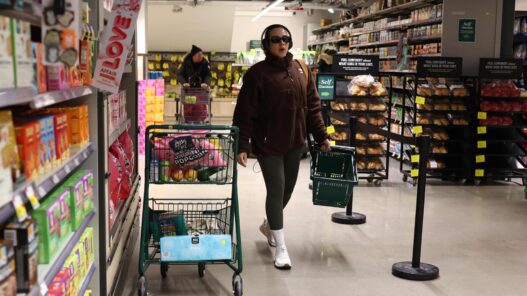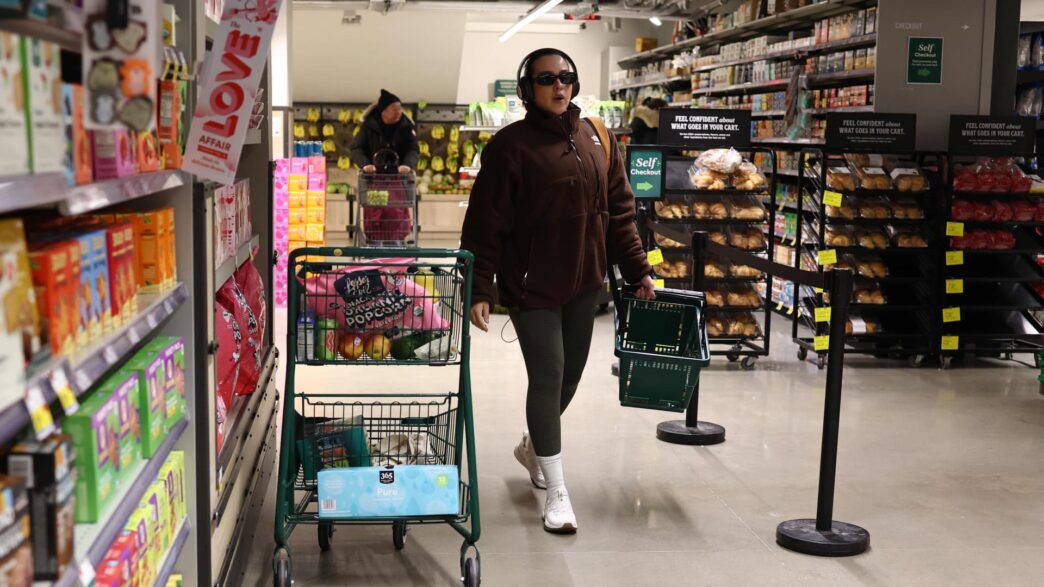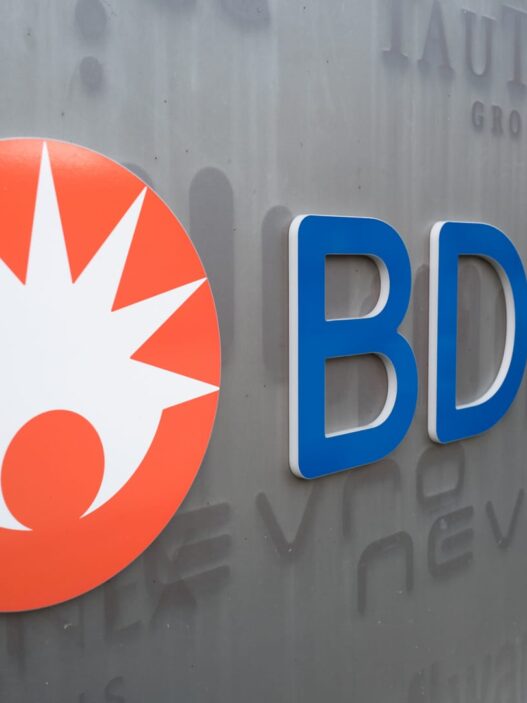People shop at the While Foods store on February 3, 2025 in New York City.
Michael M. Santiago Gety pictures
A close observer has shown on Friday that consumers have become very concerned about inflation in the short term, as President Donald Trump prompted an aggressive tariff against the main American trading partners.
the Consumer survey at Michigan University For February, the respondents showed that the respondents expected that the inflation rate annually be 4.3 %, jumped a percentage of January 1 and the highest level since November 2023.
Although Trump has stopped the tariff against Canada and Mexico, the threat on the horizon to pass prices to consumers shook morale. China imposed average definitions after Trump’s move. The survey window lasted from January 21, a day after Trump took office to February 3.
“It seems that many consumers are concerned that high inflation will return during the next year,” said Joan Has, director of the survey. “This is only the fifth time in 14 years, we have seen a one -month rise (one percentage or more) in inflation expectations throughout the year.”
The expectations did not reach the long term, as the expectations of up to five years are drifted to 3.3 %, an increase of 0.1 percentage.
Fears of inflation are compatible with optimism in general, as the title index decreased to 67.8, a one -month decrease of 4.6 % and 11.8 % decrease from the same month before the year. The economists surveyed by Dow Jones were looking for reading 71.3.
The survey is sometimes affected by changing political wind. However, HSU pointed out that the decrease in feelings was “widespread, with Republicans, independents, and democrats who spread all feelings from January, along with consumers across age groups and wealth.”
The shares turned to a decrease after the report, with the first dow Jones average of about 300 points.
“The high prices of definitions are the first financial concern of the Americans, as the weight of inflation is still repressive of family budgets, especially among those who have less income,” said Robert Freik, economist at Navy Credit Union. “Even simple price increases, especially in upper pain points such as food, shelter and transportation, will feel millions.”
HSU said that the declines in general in various scanning indexes reflect “a perception that it may be too late to avoid the negative impact of the customs tariff policy.”
The current conditions index also decreased to 68.7, or 7.2 % less than January and a decrease of 13.5 % from last year. Expectations decreased to 67.3, a decrease of 2.9 % and 10.5 %.












